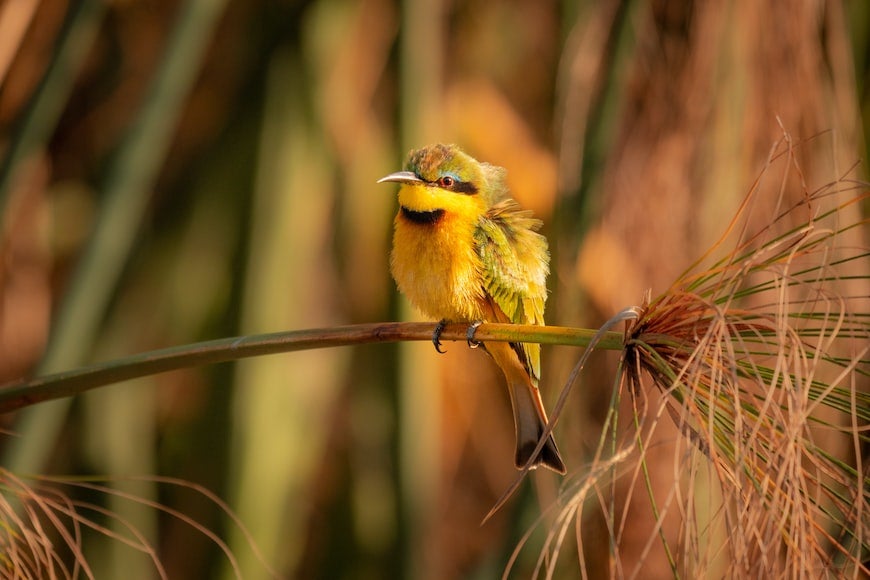Ex poacher now advocates for conservation in Botswana’s Okavango Delta
Protecting animals protects our livelihoods, he says, after three years in prison for rhino poaching

By Solomon Tjinyeka for INK 24
Born and raised in Botswana’s Okavango Delta, Otimile Monnamao’s life has always been about fishing and hunting small animals for subsistence.
Out of financial desperation, he found himself involved in wildlife crime.
Monnamao, who hails from Seronga village close to the beginning of the delta, is a former poacher who has turned into a wildlife conservationist and is also taking part in some tourism activities in the Delta.
In an exclusive interview with INK24, he explained how he ended up being involved in wildlife crime, an activity that changed his life completely.
One day in 2004 while doing his usual hunt of small game in Boro settlement in the Delta, his friend (name withheld) introduced Monnamao to rhino poaching and explained the monetary value of ivory, something that he was not aware of.
Without any hesitation, he agreed to the illicit way of making money.
“We entered the Delta as usual but this time we were aiming for bigger game.
“We spotted two rhinos, killed them and removed their horns and took them home and kept them safe until we found a buyer,’’ he explained.
Unfortunately before they could find a buyer, the two men were arrested for illegal possession of ivory and sentenced to 10 years in prison.
After serving almost three years in prison, Monnamao was released in 2007 on health grounds.
Although he regrets his part in killing one of the most endangered species in the world, he admits it was his first time getting involved in such activity and he was not aware of its dangers.
He had naively thought of it as a quick money scheme and nothing else.
After serving his prison sentence, Monnamao has now become a wildlife conservationist, swearing that he will never connive with poachers to kill wildlife.
‘’I have now realised the importance of preserving our wildlife and I will never get involved in wildlife crime,’’ Monnamao declared.
Coming out of prison, he faced many challenges as people still regarded him as a poacher. It took a long time before they could accept him into the community.
“I ventured into farming and also did some fishing on a small scale for survival,” he stated.
Although he is still farming, Monnamao is also involved in tourism.
He is now a mokoro poler, making a living through transporting tourists into the delta.
He applauded the local community trust, Okavango Kopano Mokoro Community Trust for facilitating community benefit through these activities as the income goes directly to them.
He however decried that for the past three years, they have had a tough time as their income dried out due to COVID -19 which affected the tourism sector.
Monnamao is hopeful that with the return of tourism in the Okavango Delta, the situation will improve.
Now living in the wildlife management area of Ditshiping in the Delta, where there is plenty of wildlife, Monnamao is a wildlife conservationist and is guarding the animals zealously from poachers.
His fears are that once they are killed, tourists will no longer visit their area.
“If there are no tourists it means that there are no mokoro trips and our community will be affected,’’ he stated.
Monnamao is working with community escort guides to fight wildlife crime and educates young people about the importance of conservation.
Area Councillor for Bojanala ward, Luke Motlaleselelo, said that people like Monnamao play a critical role in conserving wildlife.
He added that some members of the community might see him as a poacher because of his past but it has proved that since he went to jail he has changed and is now a conservationist and advocate against wildlife crime in the area.
Motlaleselelo said that involving the community in anti-poaching is critical and people like Monnamao should not be left out as they will play a critical role in combating wildlife crime.
This article is reproduced here as part of the African Conservation Journalism Programme, funded in Angola, Botswana, Mozambique, and Zimbabwe by USAID’s VukaNow: Activity. Implemented by the international conservation organization Space for Giants, it aims to expand the reach of conservation and environmental journalism in Africa, and bring more African voices into the international conservation debate.
Read the original story here:

Join our commenting forum
Join thought-provoking conversations, follow other Independent readers and see their replies